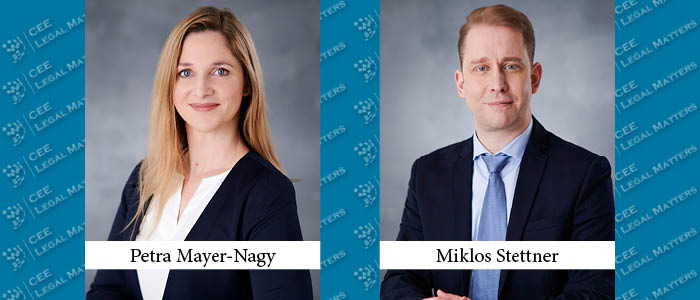In terms of legislation, first, a long-awaited amendment of the insolvency act allows the liquidator to upkeep the debtors’ operation during the liquidation process even if it is at a loss, if it can be assumed that the operation preserves the assets better than shutting off the business would. The liquidator can decide to continue the operation for the first 120 days of the liquidation procedure, but any further extension of this operation period requires the approval of the court.
During such an upkept operation, new loans can be drawn down and new funders can be involved, which seems to be a new possibility for financial institutions and investors. Such loans can be covered by new collaterals, such as pledges, and arising claims will take the first place in the order for satisfaction of the claims. As this new legislation is already in use during the liquidation of the biggest Hungarian steel mill, where the possible future buyer is providing new resources, the first experiences will follow soon.
Second, the number of securities available to creditors will increase if a legal institution known in German law as Erbbaurecht is implemented in Hungarian law. To our knowledge, the legislator is planning to reintroduce this legal instrument into Hungary in order to strengthen economic competitiveness. The use of the right of the building (in Hungarian: eptmenyi jog) as security for a loan would allow, for example, the favorable financing of solar parks.
Third, in our experience, there has been a significant increase in the number of online fraud claims for refunds brought before the Hungarian Financial Conciliation Board (PBT). The frauds in these proceedings take various forms. It is common for fraudsters to pretend to be a bank employee and in this way obtain the customer’s bank details. It is also common for fraudsters to send an offer for the customer’s product on an online marketplace and then get the customer’s necessary bank details during a fake payment transaction, even using a fake banking website. Depending on the type of bank details acquired, the fraudsters use them directly to get the customer’s money (credit card details), or they install and activate a new mobile banking application or mobile wallet (e.g., Google Pay or Apple Pay) to the customer’s account.
The bank can demonstrate in PBT proceedings that the fraudulent transactions were authorized in accordance with the terms of its contract with the customer. The bank can prove that data required for the transaction (e.g., PIN) are only known to the customer, and – regardless of any circumstances – the transaction would never have succeeded without the data given out. However, due to the strict implementation of the revised Payment Services Directive (PSD2) in Hungary, in the absence of customer acknowledgment, that is not sufficient in itself.
The PSD2 was not intended to exempt consumers from liability if they disclose their sensitive bank details to strangers through gross negligence. For these reasons, the Hungarian Banking Association has initiated a legislative amendment to ensure that the cost of consumers’ gross negligence is not borne by the banks.
Looking at the markets, the bank sector is getting more concentrated and there is significant movement in the bank market. Erste Bank Hungary Zrt. used the possibility provided by Hungarian regulations where a bank’s portfolio can be transferred (in whole or in part) with the approval of the National Bank. With the help of the succession of the employer as defined in the Labor Act, it bought the entire portfolio and took over most of the employees of German Commerzbank AG subsidiary Commerzbank Zrt. In a similar fashion, after acquiring Sopron Bank, its whole portfolio has been transferred to its new owner, Magnet Bank.
Meanwhile, there is a huge three-way merger ongoing, with the former TakarekBank as leader, including Budapest Bank and MKB Bank. It will be completed this spring, establishing the second largest bank in Hungary, the Magyar Bankholding, with 100% Hungarian ownership.
Finally, contrary to the trends above, according to market rumors, two new entities (neobanks) are expected to enter the Hungarian bank market, one having already filed for a license.
By Petra Mayer-Nagy, Head of Finance, and Miklos Stettner, Head of Consumer Conciliation, Lajer Legal
This article was originally published in Issue 10.3 of the CEE Legal Matters Magazine. If you would like to receive a hard copy of the magazine, you can subscribe here.




